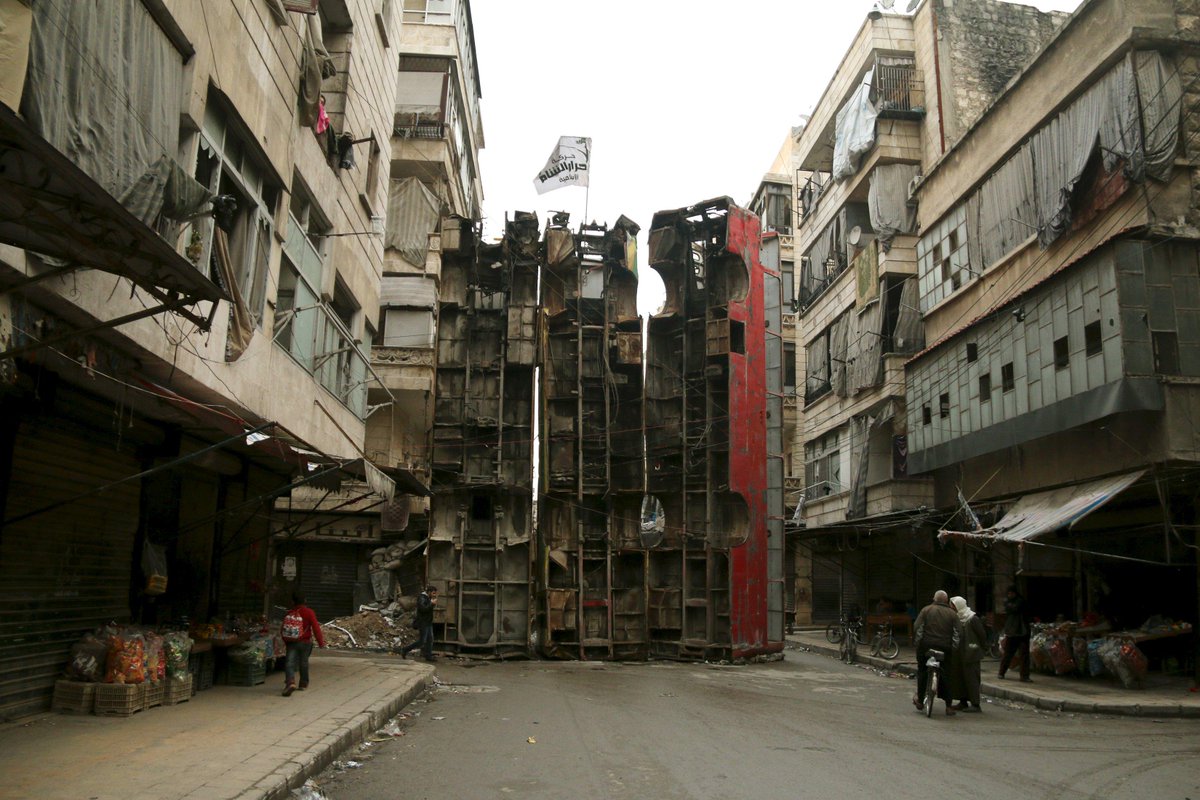A controversial new monument has been erected in Dresden in honor of the victims of the battle for Aleppo.

Photo: Getty Images / AFP / Sebastian Kahnert
Syrian artist Manaf Halbouni has erected a controversial new monument in the central square of Dresden city, Germany. According to the artist, he tried to recreate a famous photo, taken by a Reuters’ photo-journalist during the battle for Aleppo in order to honor memory of the victims of the hostilities in the city. However, some people think that the monument may have been inspired by temporary fortifications, set up by radical Islamists, who killed Christians and was linked to the al-Qaeda terrorist group.
A photo, which inspired Halbouni, shows three buses, which were vertically set up on one of the streets of Aleppo city and used as a fortification against snipers of the Syrian Arab Army. According to anti-mass migration NGO Einprozent, the flag, which can be seen on the top of one of the buses, belongs to the Ahrar al-Sham group, allied with the al-Qaeda-backed al-Nusra Front.
DAS sind Barrikaden! "@kritsanarat: Reuters photo from #Aleppo : buses barricading a street, protection from snipers pic.twitter.com/seRyqC8zkC"
Since that time, Ahrar al-Sham has changed its flag, however, the group still intends to depose Syrian President Bashar al-Assad and implement strict Sharia law in Syria. As the Amnesty International non-governmental organization reported, the group took part in tortures of religious minorities and political opponents, alongside with other terrorist groups, such as the Nour al-Din al-Zenki movement and Jabhat Fateh al-Sham (previously known as the al-Nusra Front). According to reports, Ahrar al-Sham also persecuted and killed Christians after the ‘liberation’ of Idlib city, located in the north-west of Syria, in March 2015.
The bus sculpture was protested by members of the anti-Islamisation PEGIDA movement, which is also based in Dresden. PEGIDA supporters booed Mayor of the city, Dirk Hilbert, who inaugurated the monument, and criticized the opening ceremony, as it took place just before the anniversary of the World War Two Dresden bombings.
Meanwhile, the creator of the sculpture told journalists that the monument symbolized “peace, freedom and humanity.”
“There is no other political message. It’s a peace memorial, a modern Statue of Liberty,” Halbouni said.


Comments
Post a Comment